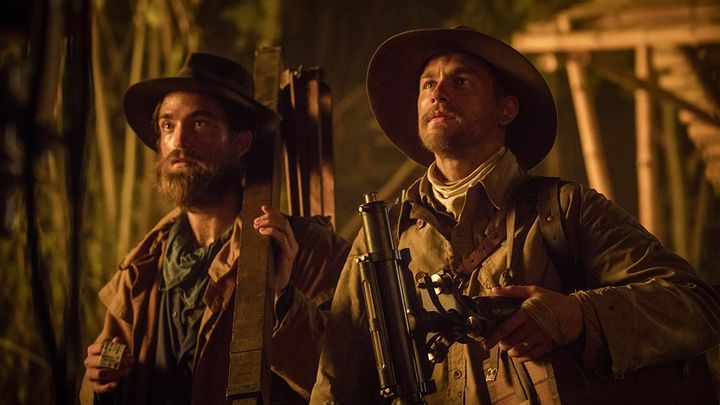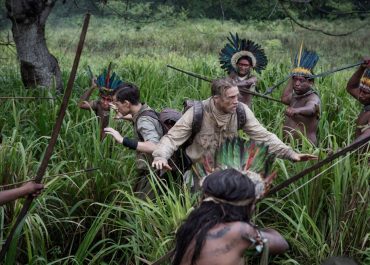Review: In terms of visualizing a grandeur story about ambition, passion, and destiny, James Gray’s The Lost City of Z might make a handful of resemblance with Paul Thomas Anderson’s There Will Be Blood and a smaller scale of it. While the latter is a chronicle of a man’s ambition over the oil field for greater goods of one’s self, the former is a spiritual adventure of a man’s ambition dividing the South American jungle to unravel humanity’s biggest secret, an older civilization hidden in the green desert.
Adapted from David Grann’s book, the quest to find Z retold the story of a British man, Percy Fawcett (Charlie Hunnam), who was tasked to map Brazil-Bolivian boundary deep in the Amazon rainforest in order to prevent wars between the two countries. Fawcett teamed up with Henry Costin (Robert Pattinson), an avid explorer of the jungle. During the tenure, Fawcett was consumed by the idea of a lost city he proposed as ‘Z’ after confirming a native’s story upon his findings of pottery. The more he believes and studies the lost city, the more he’s obsessed and the more his ambition to prove its existence emerges, engulfing his own existence.

James Gray (The Immigrant, Two Lovers) presents The Lost City of Z as a grand journey using the most methodical approach of classic ‘jungle’ storytelling. The wild jungle is depicted as a surreal landscape where its existence is proof of natural mysticism as there’s always power beyond human comprehension to jeopardize outsiders. Jungle is depicted as heaven and hell at the same time and religion to those living inside it. With such beliefs, Fawcett’s journey becomes somehow mirroring Alien” Covenant’s tagline, where the road to paradise begins in hell. There’s a subtle allusion to underlie Fawcett’s obsession towards the ‘paradise’ which extends to the finale. He’s always been a pariah – a person birthmarked by ancestral flaws – who seeks redemption by dividing the forest. In whatever sense, Fawcett’s journey is always spiritual more than it is physical; and James Gray found the most relevant to convince that about this.
Of course, direct comparison to There Will Be Blood is a reckless remark; yet, it is truer than true that both films share a spiritual connection, despite working the other way around. Blood marks how obsession and ambition drive humanity into greed and a notion of pure evil represented in the character’s transcendence in thoughts and descend in attitude. Meanwhile, Z aims for a similar effect only this one sees the character ascends into a further realm than simply being evil or not. There’s something ambiguous yet obvious in conclusion.
Charlie Hunnam does not seem fit to step in such a perplexed character at first, but as the story ventures, Hunnam is able to bring complexity to the explorer. He shows a nuanced range to his two-decade portrayal even when he confronts Sienna Miller and Tom Holland. Possibly, Percy Fawcett is a challenge to him, but upon the completion, he has proven that the road to stardom might start here.
Meanwhile, the challenge for the audience comes from Gray’s ambitious storytelling method which requires 140 minutes of attention and his final decision to prolong the resolution. With powerful direction and serious ‘portrayal’ of nature as a kind of force, Gray could’ve made a more powerful ending that lies on visual language rather than explicitly goes for some extra miles for an extended fatigue-induced finale. The only justification for such finale is that it might manifest Mrs. Fawcett’s hopeful exhaustion, but that might sound off because it’s a story about Mr. Fawcett and his spiritual journey.
In the end, The Lost City of Z becomes a spiritual exploration of humanity and nature’s grandiosity as reflected in Percy Fawcett’s perplexed range, carried on by Charlie Hunnam. The whole verdict is a long complex sentence.

[imdb style=”transparent”]tt1212428[/imdb]


Leave a Reply